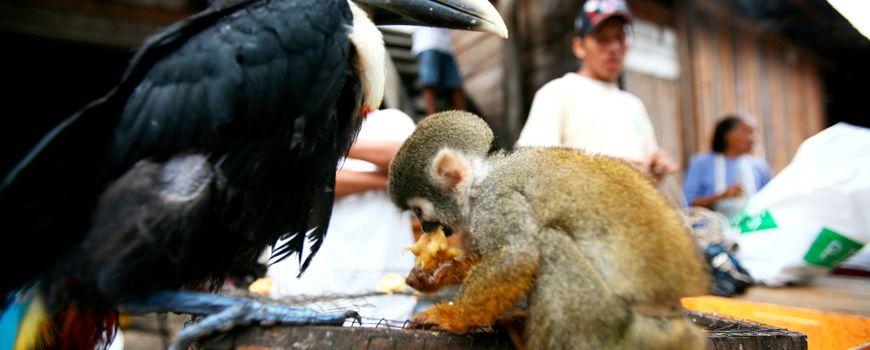On the occasion of the World Health Organization (WHO) annual meeting this week, WWF is releasing the results of a survey of residents of China, Myanmar, Vietnam, Thailand and the US on how they view the causes of the COVID-19 pandemic, their relationship with nature and what that means for their behaviour.
The report ‘COVID-19: One Year Later: Public Perceptions about Pandemics and their Links to Nature‘ is written by GlobeScan on behalf of WWF and examines how COVID-19 has changed people’s lives, perceptions and attitudes towards nature and the prevention of new pandemics. The research builds on that from a year ago.
One of the findings of the new study is that, after more than a year of COVID-19, there is a strong awareness that human-animal interaction can lead to serious disease outbreaks, often linked to deforestation and wildlife trade. animals. 46 percent of all participants see the transmission of diseases from animals to humans as the most likely cause of future pandemics.
Fewer wild animals on the table
In China, 28 percent of those surveyed consume less or no wildlife at all because of COVID-19. In Thailand, that number has almost doubled (from 21 percent in 2020 to 41 percent in 2021) and in Vietnam it has remained stable (from 41 percent in 2020 to 39 percent in 2021). However, there is also a hard core of 9 percent of participants in all five countries who say they will continue to buy wildlife products in the future.
Wide support for tackling underlying causes
Recent WHO study points to wildlife as a likely source of the pandemic. The route by which the virus can spread is most likely the trade in high-risk wild animals for food, pets or luxury items.
The majority of those surveyed believe that preventing future pandemics starts with addressing the root causes, including high-risk wildlife trade and deforestation. More than four in five respondents support government action to address these threats. Especially in China (91 percent) and Vietnam (84 percent), closing wildlife markets is seen as the most important measure to prevent new pandemics.
Restore relationship with nature
Marco Lambertini, Director General of WWF-International: “The only way to prevent pandemics is to stop destructive human activities that cause the loss of nature – such as deforestation, unsustainable wildlife trade and risky consumption of wild animals – rather than reacting to outbreaks after they have occurred. It is estimated that preventing pandemics costs 100 times less than responding to pandemics. The corona pandemic has made it abundantly clear that investing in a healthy planet and nature is the only way to avoid having to pay such a terrible social and economic price again in the future. Scientists are very clear about it: If we don’t rebalance our relationship with nature, it’s not a question of whether another pandemic will strike, but when.”
One Health: the health of people, animals and nature are linked
The main causes outbreaks of zoonotic diseases (animal-to-human diseases) include wild animal breeding, land-use change deforestation and trade in high-risk wildlife (including pangolins, civets, birds, bats and rodents). All of them can facilitate and facilitate the spread of diseases such as COVID-19, SARS, MERS and Ebola by bringing wild animals closer to people and pets.
WWF is calling on governments at WHO’s meeting this week to integrate a One Health approach into all relevant policy areas and to prevent future pandemics. leading causes of zoonotic disease outbreaks to deal with. Stopping deforestation and closing risky wildlife markets, for example, will help restore wildlife populations and preserve local and global biodiversity that naturally helps regulate disease, while contributing to sustainable use of our natural resources.
Text: World nature Fund
Photo’s: Brent Stirton, Getty Images; Tesso Nilo Zulfahmi
– .


